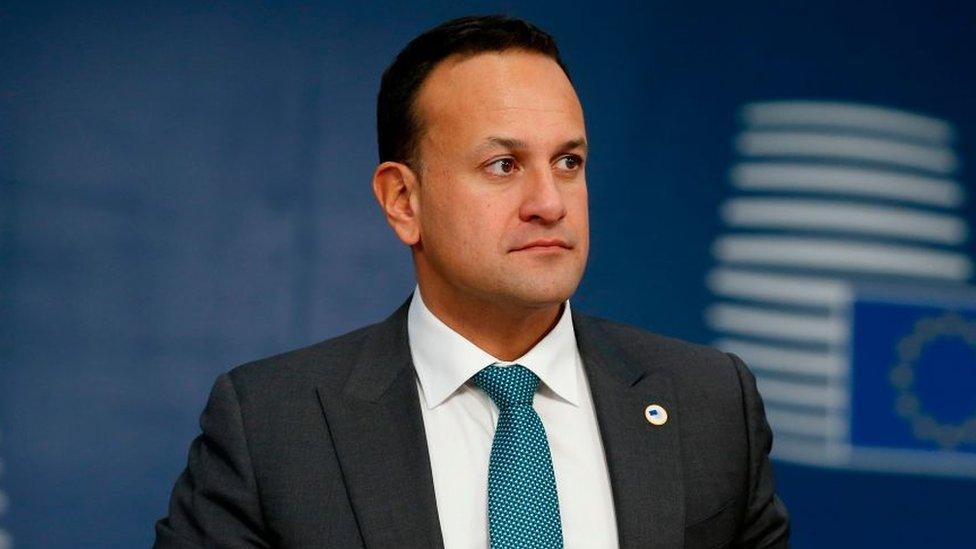Brexit: More than 1,000 people call for 'changing Ireland' forum
- Published

The letter to Leo Varadkar was organised by the group Ireland's Future
More than 1,000 Irish citizens have written to Taoiseach (Irish Prime Minister) Leo Varadkar calling for a citizens' assembly or forum to discuss constitutional change in Ireland.
They have expressed concern about the "negative repercussions" on Ireland and the peace process from Brexit.
The open letter was organised by the group Ireland's Future.
It argued the "constitutional, political, social and economic status quo on the island" was "in flux".
Those who signed the letter said that after Brexit Irish citizens should continue to enjoy the rights they accrue from EU membership.
The group believes it is the Irish government's responsibility to defend those rights, regardless of where its citizens live on the island.
'Mutual, inclusive conversation'
Prominent figures from the arts, business, sport and the professions have signed the letter.
They include the actor Adrian Dunbar, the economist David McWilliams, the footballer James McClean and the boxer Michael Conlan.
The concert promoter Peter Aiken and musicians and writers such as Christy Moore, Sharon Shannon and Martina Devlin have also put their names to it.
Unionists should have a say about how a "new Ireland" would look, says Niall Murphy
Ireland's Future spokesman Niall Murphy, a lawyer from Belfast, told Â鶹ԼÅÄ News NI his group does not consider that a vote on Irish unity "should happen today, tomorrow, this year or... next year".
He said it should not happen "until... all of the economic modelling has occurred and until there has been a mutual inclusive conversation about how a new Ireland would look".
The letter to the taoiseach is the latest in a series from civic nationalists.
The group behind it said it did not want to replicate the "reckless madness" in which the Brexit debate has unfolded in the UK.
Instead it argued it was better to prepare and converse for what it regarded as the "demographic inevitability" of constitutional change in Ireland.
Mr Murphy said a conversation about the potential consequences of an Irish border poll could only happen with what he describes as the "appropriate input from the unionist community".
- Published16 October 2019
- Published23 October 2019
- Published19 October 2019